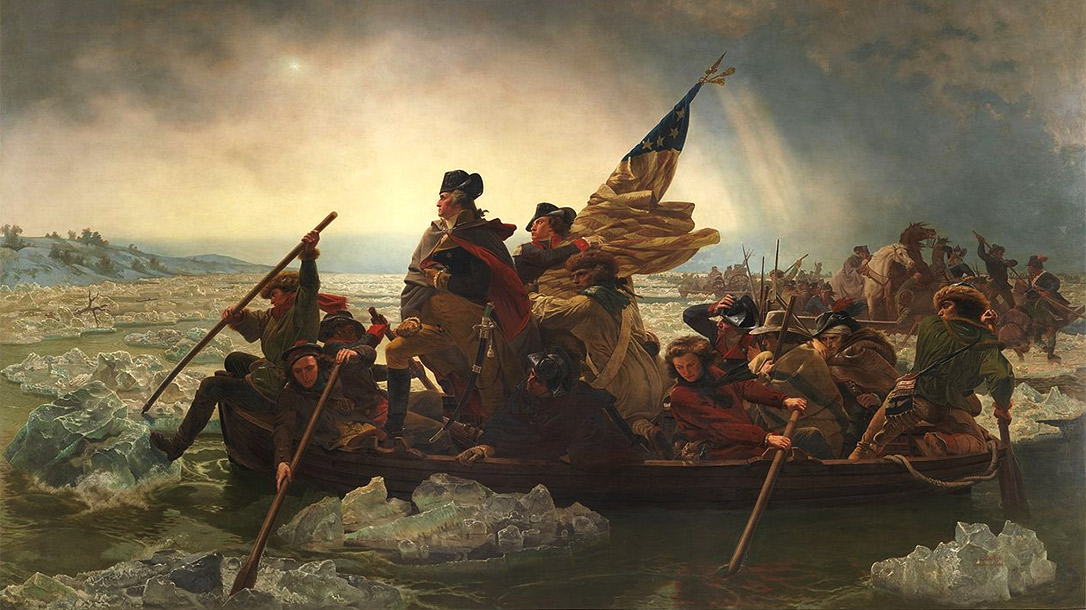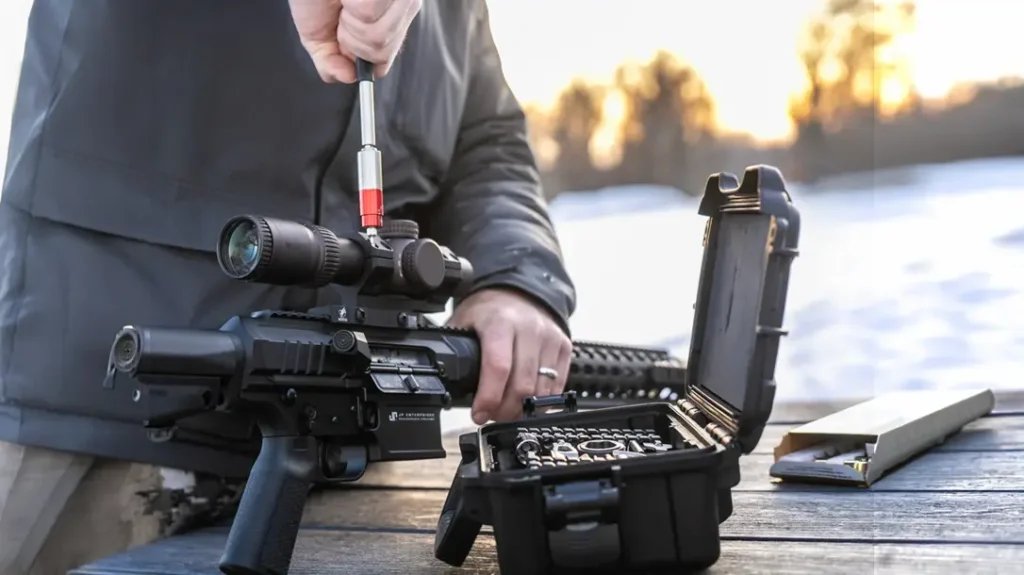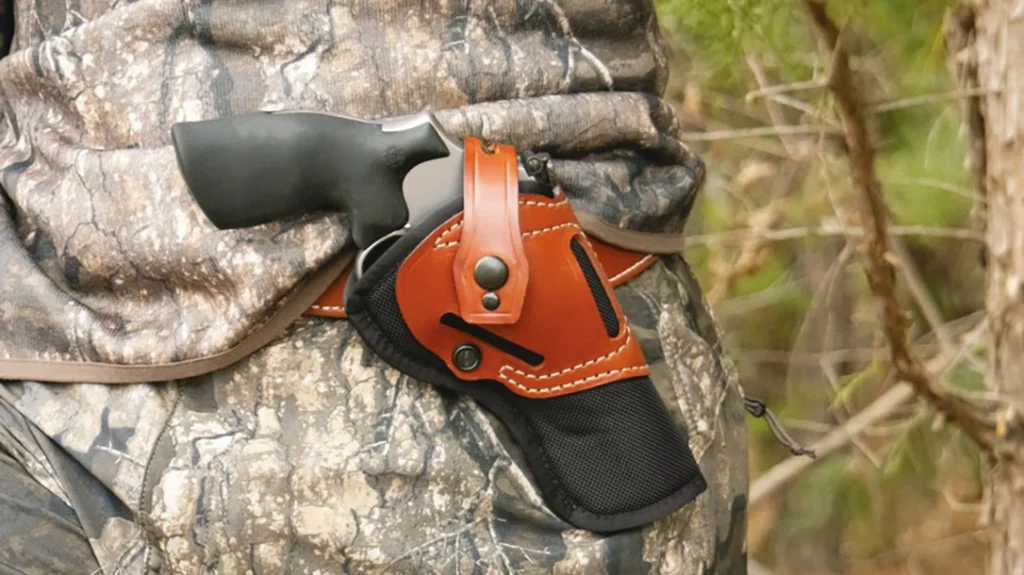They say that hard times create strong men, strong men create good times, good times create weak men, weak men create hard times. A short walk through history proves this to be spot on. But there is no better example than our own United States of America. It was hard times that drove our founding fathers to create this amazing country and strong men have preserved it. So, it’s no surprise that almost every historical figure you’d want to have your back comes from our own history.
Which Historical Figure Do You Trust to Have Your Back In a Dangerous Situation?
We all have at least one friend that we want to have our back in a dangerous defensive situation. That one friend that you know will help get you out, relatively unscathed. But what if you could pick someone from history that could be there? What historical figure would you want standing behind you, giving the evil eye to the trouble standing before you?
We took to Facebook to ask you, the reader, who you would choose in our latest Real Talk segment. The answers were not only most agreeable but also almost unanimously figures from our country’s history. It’s not too surprising though. We are who we are because of the badasses before us.
Advertisement — Continue Reading Below
George Washington
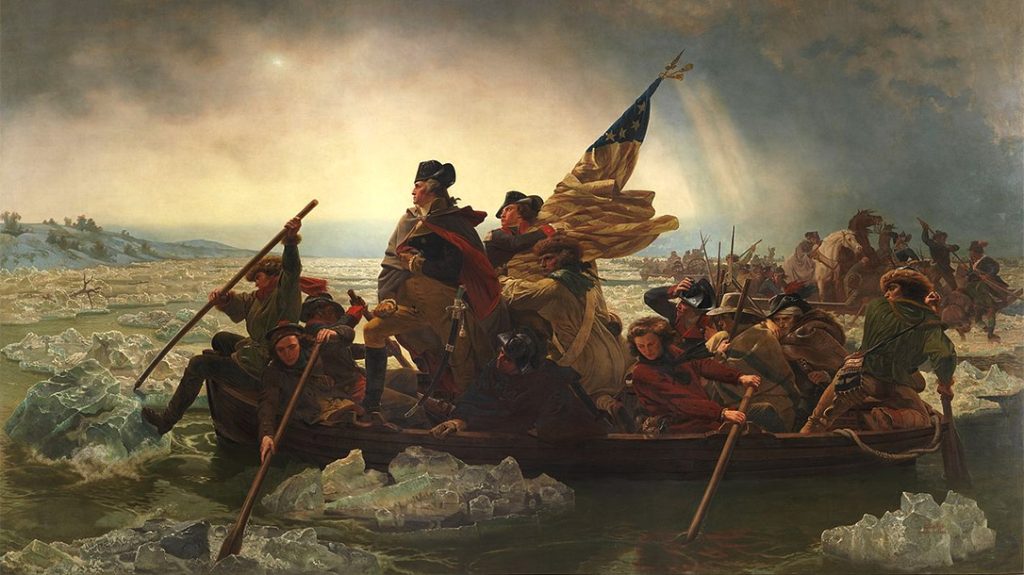
Starting off the list is an obvious choice—George Washington. Not because he was the first President of the United States but because he was one tough General. He was also a fearless warrior to boot.
During the Battle of the Monongahela in 1755, General Washington had two horses shot out from under him. Upon further inspection, it was also found that his coat had four bullet holes. Yet he rode forward, and took charge of the collapsing lines, leading them to victory.
Advertisement — Continue Reading Below
However, most noteworthy is the fact that he is responsible for the successful founding of our country by saving the American Revolution on two occasions. After suffering a series of defeats in New York and New Jersey, things looked bleak for the Continental Army. However, instead of retiring and regrouping for the winter, Washington took bold action.
His counter offensive, across the icy Delaware River on December 26, 1776, led to three battlefield victories. As a result, the tides had turned in the War for Independence and boosted morale.
Likewise, in early 1781 Washington marched south, surrounding and launching a bold attack on Lord Cornwallis’ British Army at Yorktown, Virginia. This turned out to be the decisive battle of the war.
Advertisement — Continue Reading Below
Total badass and true hero of the people, Washington won both his Presidential runs unanimously. However, since there were no term limits at the time, Washington could have remained President his entire life. But he resigned after his second term because he did not want to abuse power. This set a precedent that many in DC today would do well to study.
Instead, Washington was the first to sign the United States Constitution, giving the power to the people.
Theodore Roosevelt
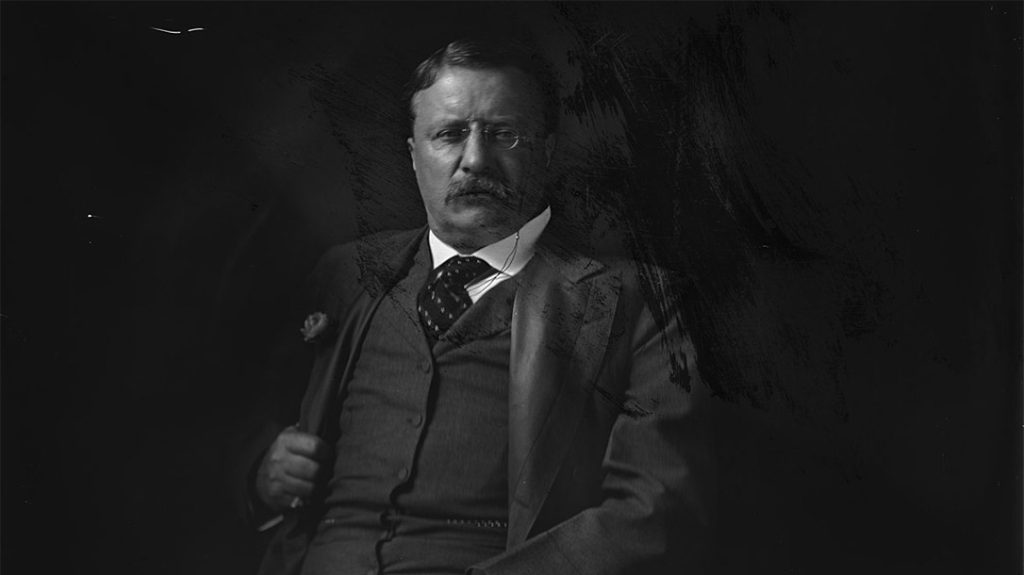
Advertisement — Continue Reading Below
Don’t let the fact that the Teddy Bear is named after him fool you. Theodore Roosevelt was as rough and rowdy as they come. If anything, he is more akin to the Ballistic Magazine mascot FUBeAR. Only more tough, less satire.
A real man’s man, Roosevelt kicked asthma’s ass at a young age by adopting even more strenuous activity. He hated a complacent lifestyle and often lamented men adopting the office life, becoming too comfortable with physical ease.
In true cowboy form, Roosevelt dealt with the simultaneous loss of both his wife and mother by starting a ranch. An avid hunter, he built his ranch in the Dakota Territory, where he first visited to hunt Bison.
Advertisement — Continue Reading Below
Most notably, before his presidential stint, Roosevelt is known for the formation of his Rough Riders. This 1st United States Volunteer Cavalry was instrumental in the defeat of the Spanish Army during the Cuban War of Independence. The Battle of San Juan Hill is the stuff of legend, leading to the Spanish fleet sailing from Cuba days later.
As if he needed another feather in his cap of tough guy accolades, he was also the first American to earn a brown belt in Judo.
General George S. Patton
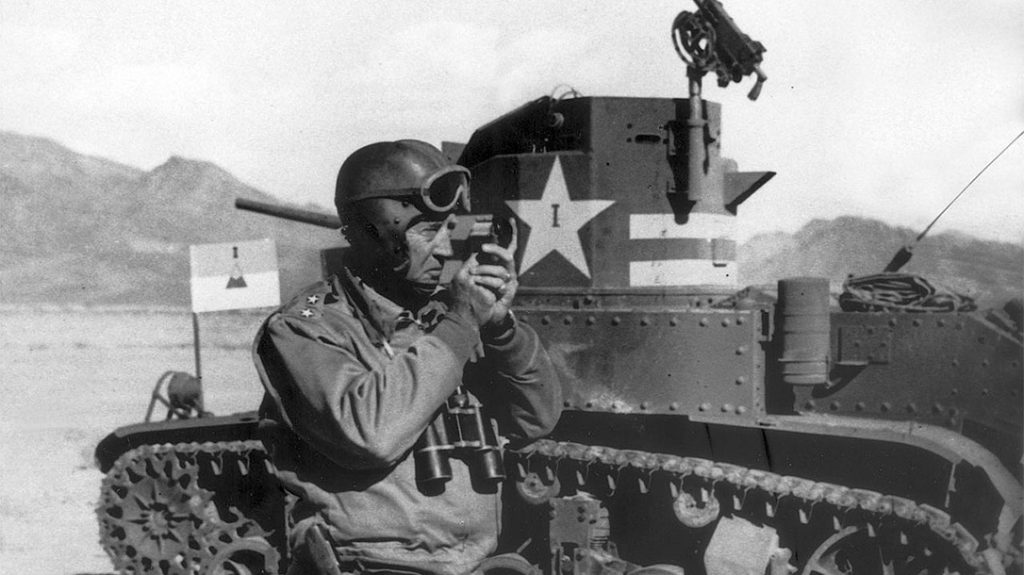
Advertisement — Continue Reading Below
With a nickname like “Old Blood and Guts,” I would rather have him behind me than opposing me. You just don’t get that kind of nickname because you gave someone a bloody nose once. That is the kind of nickname that is earned in the crucible of hard war.
Patton had a reputation for leading from the front, inspiring his troops in battle. His famous speech to the Third Army even concluded with, “All right, you sons of bitches. You know how I feel. I’ll be proud to lead you wonderful guys in battle anytime, anywhere. That’s all.”
A true dog of war, Patton’s military career spanned 1909 to 1945, including WWI, WWII and the Mexican Revolution. Patton took part in the Pancho Villa Expedition, the United States’ first military action using motor vehicles. This led to him fighting in WWI as part of the new US Tank Corp. He eventually went on to be a central figure in the development of the Army’s Armored Warfare Doctrine.
Did you know, he even competed in the modern pentathlon in the 1912 Summer Olympics in Stockholm Sweden?
Chesty Puller
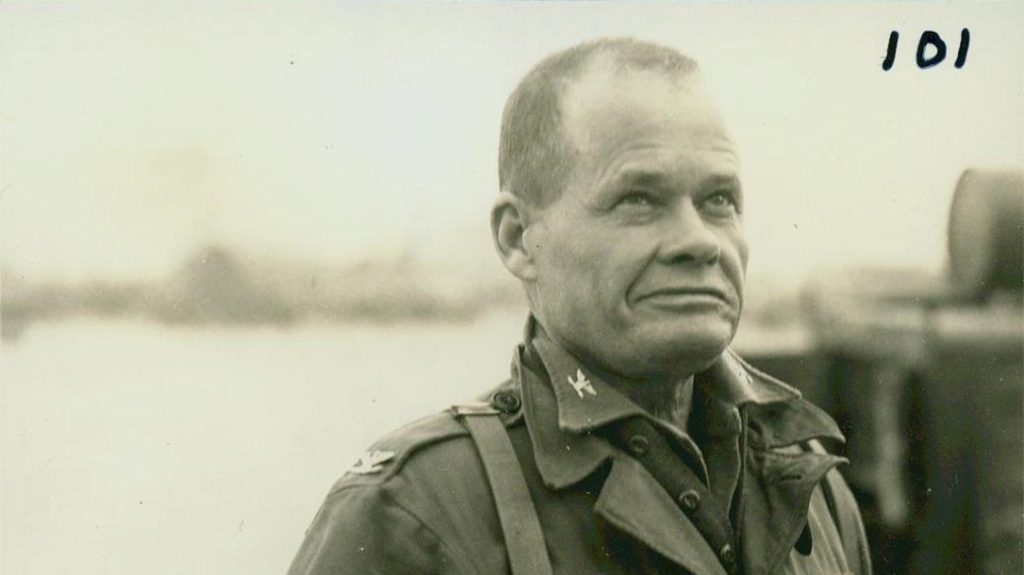
“They’ve got us surrounded? Good! We can shoot in any direction. Those bastards won’t get away this time.”
Seriously. Who thinks like that? Although paraphrased; the most highly decorated Marine in United States history, that’s who.
Lewis Burwell “Chesty” Puller was bred for one purpose—warfare. Chesty started his 37 years of military service fighting guerillas in Haiti and Nicaragua as part of the Banana Wars.
It was during an engagement in one of his first missions of the Banana Wars that Chesty earned his first Navy Cross. The award came after he led his platoon against a much larger opposing force. As a result, his men routed the enemy in five different engagements and annihilated the rebel positions. His platoon sustained minimal casualties.
Chesty went on to serve with distinction as a senior officer in WWII and the Korean War. During his service, he earned a total of 5 Navy Crosses and one Distinguished Service Cross. Chesty always led from the front, fighting in the trenches with his men, never flinching under heavy fire. He was a man who was admired by his men and feared by his enemies.
They say that the bogeyman checks under his bed for Chuck Norris at night. Chuck Norris checks under his bed for Chesty Puller.
Sergeant York
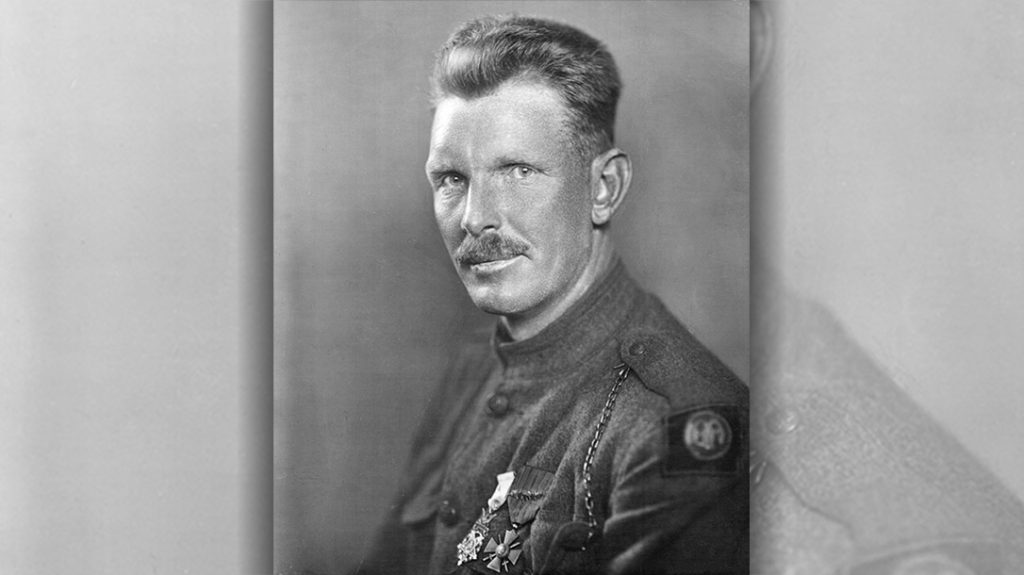
Although he had a reputation for drinking and fighting, Sgt. York did not start out a military man. However, in 1917 York joined the 82nd Division and went to France in 1918.
In October of 1918 York entered the halls of infamy in an attack that occurred during the Meuse-Argonne Offensive. It was during this attack that York’s battalion sought to capture German positions near Hill 223. This was important, in order to allow the 328th Infantry to renew its attack to capture the Decauville Railroad.
Taking on heavy machine-gun fire, York, along with three other non-commissioned officers and thirteen privates, had orders to take out the machine guns. Flanking the German’s position, the men overran the headquarters of the German unit and captured a large group of soldiers. However, while contending with the prisoners, German machine-gun fire resumed, killing six Americans and wounding three others.
While several Americans returned fire, others guarded the prisoners. York, on the other hand, used his position to fight the Germans. York shot several Germans, led by a German officer, with his pistol.
When a German Army First Lieutenant emptied his pistol, unsuccessfully attempting to kill York, he surrendered to York in English. Having accepted his surrender, York and his seven men marched 132 German prisoners back to American lines.
York was one of the most decorated United States soldiers of World War I.
Parting Thoughts
History has no shortage of complete badasses documented for stunning acts of courage, bravery, and all-out rowdiness. But upon reflecting on the list of names in our Real Talk segment, our US soldiers really stood out.
For me, this list exemplifies the American spirit and is full of men I would gladly have at my back.
Patton said it best when he said, “Americans love a winner and will not tolerate a loser. Americans play to win all the time. That’s why Americans have never lost and will never lose a war. The very thought of losing is hateful to Americans. Battle is the most significant competition in which a man can indulge. It brings out all that is best, and it removes all that is base.”
